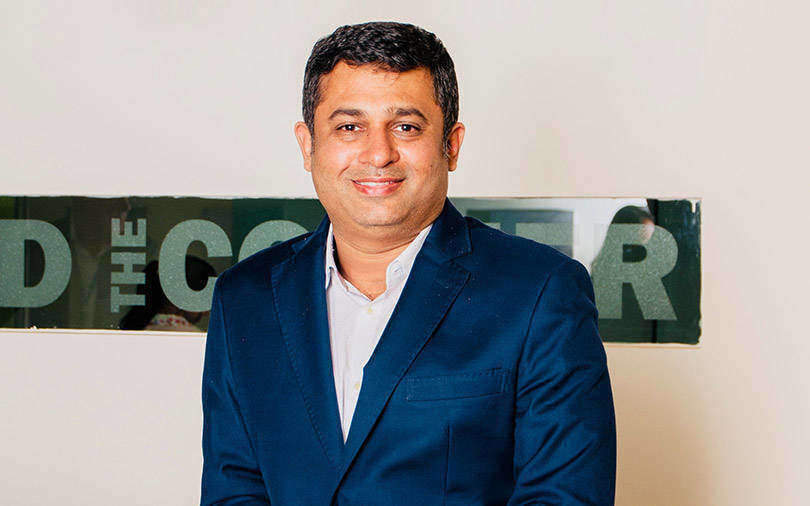
Eka Software’s Manav Garg on the benefits of a platform-first approach


Bengaluru-based Eka Software Solutions, a provider of commodity management software solutions, pursues a platform-first approach for problem-solving. The company’s platform is used by commodities players across verticals such as metals and mining, agriculture, manufacturing and energy to get a singular view of daily processes, trades and transactions.
Founded in 2004 by former agricultural commodities trader Manav Garg, Eka leverages the cloud, blockchain, machine learning and analytics to deliver solutions to its clients.
In an interview with TechCircle, Garg spoke about how the platform-first approach delivers benefits such as building multiple products in an agile and efficient manner, the challenges that enterprises face in making maximum use of the approach and the current global platform scenario.

Edited excerpts:
What is the platform-first approach to problem-solving?
For a platform-first approach to problem-solving, companies need to adopt the platform as a business framework. Earlier, most businesses and startups were focused on solving one problem at a time and this would typically involve building everything from the ground up. A platform, however, allows you to build multiple products simultaneously. The speed and flexibility that a platform provides enables businesses to test multiple solutions and make critical pivots relatively easily.

From a startup perspective specifically, incorporating a platform at the conceptualisation stage will help scale faster and address fundamental shifts in the journey towards building a long-term and sustainable business.
What are the current challenges within enterprises with regard to adopting a platform-based approach?
The two biggest challenges in building a platform are time and money. Platforms require a significant amount of time and talent to build a robust working model, and more importantly, capital to fund it.

On an average, it would take about 18-24 months to build a platform and anywhere between $5 million and $10 million in terms of capital investment. Raising that kind of capital is difficult, particularly for a startup, unless you are a very experienced entrepreneur. To put that in perspective, startups typically raise that kind of money to set up an entire business.
How should business-to-business (B2B) and business-to-consumer (B2C) companies take a re-look into building their marketplaces?
With markets becoming integrated, how companies choose to build marketplaces has become a determining factor for success. The key to building a successful marketplace is to ensure that everyone is connected. One good way would be a blockchain-based marketplace. It allows for secure and seamless upstream or downstream transactions and speedy conversations and transparency. All of these are much-needed elements in marketplaces today for both B2B and B2C players.

Why are platforms more agile than legacy systems?
By taking on a platform-based business model, companies have the flexibility to build multiple products at the same time and customise them without having to build them from scratch, therefore saving time, effort and money. Earlier, when building multiple products, companies would take anywhere between 12 and 14 months on each product. With a platform, time-to-market can be reduced to 3-4 months.
Legacy systems, on the other hand, are cumbersome and are typically not equipped to integrate with newer technologies. A common phenomenon is ‘tech bloatware’ where businesses keep adding newer technologies as they grow because their legacy systems can’t keep up with their business goals.

Players with platform-based business models have the flexibility to scale with the business at a fraction of the cost, while boosting overall efficiency and productivity. It allows businesses the freedom to respond to newer opportunities faster.
How can platforms enable synergies between blockchain, AI and the cloud?
Whether you are a large enterprise or a startup, today everyone is invariably in the data business. And what you do with this data will define your success moving forward.

Platforms are increasingly becoming critical in allowing businesses to leverage data in a way that will truly benefit them. Regardless of the type of technology being used, be it AI, ML or blockchain, a platform allows such modern technologies to converge and enables users to harness data for impactful decision making.
How can Indian enterprises use platforms to monetise and scale? Give us a sense of the global scenario.
For any company -- global or Indian -- to be able to build a platform, it is all about the vision. First and foremost, they need to be convinced that a platform is the way forward and a great enabler in boosting customer value.
Globally, players such as Amazon and Apple have made the platform-based model work for them in terms of scalability and revenue generation. Indian enterprises such as Freshworks and Zoho have done a great job of providing multiple products using a platform and they are doing it very well. There are Indian platform players in the e-commerce and healthcare markets as well that are successfully harnessing this model, but there is definitely potential to do a lot more.
